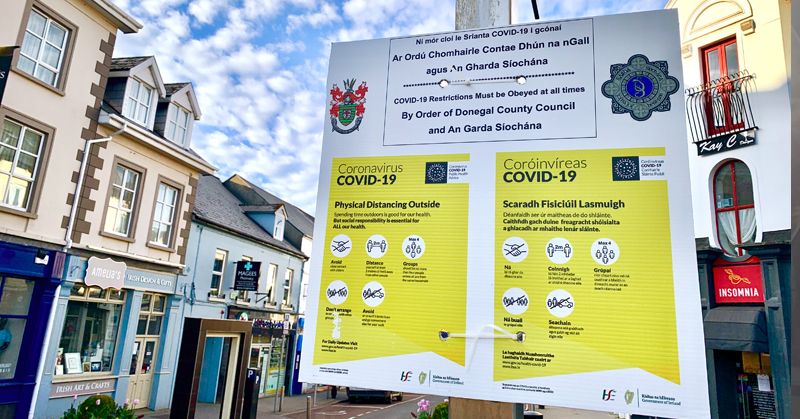Gardai have said it is vital that a high level of compliance with public health guidelines is maintained in phase one of the Covid health guidelines.
In supporting the COVID-19 guidelines, An Garda Síochána has adopted a graduated policing response based on its tradition of policing by consent.
This has seen members of An Garda Síochána engage, educate, encourage and, as a last resort, enforce.
During this time, Gardaí have interacted with hundreds of thousands of people while on patrol or at checkpoints. The vast majority were adhering to the public health guidelines.
In what continues to be a small minority of cases across the country, despite receiving a number of warnings, some individuals were still not willing to take steps to comply with the public health guidelines and the regulations were used under the Health Act 1947- Section 31A- Temporary Restrictions (Covid 19) Regulations 2020.
From 8 April, which was when the regulations came into effect, until 16 May 2020 inclusive, Gardaí have invoked the regulations 241 times out of hundreds of thousands of interactions with the public. These include both arrests and incidents without arrest where name and address details were taken for consultation with the DPP on the decision to issue charges. Arrest remains a last resort.
Of the 241 incidents, two were as a result of an instruction from a relevant medical professional as per the Act.
As per Garda policy in relation to the regulations, in all cases where arrests were made under the regulations, members of An Garda Síochána consulted with the Director of Public Prosecutions on the decision to charge.
Some of these incidents are already before the Courts.
In addition, pre-existing enforcement powers were used in 1,621 incidents where other offences were disclosed in the course of COVID-19 operations. These range from incidents such as drink driving or disqualified drivers detected at checkpoints, to drugs and weapons seizures, to public order offences.
The number of incidents involving other suspected crimes continues to far exceed the number of cases involving only breaches of Government restrictions.
Commissioner Drew Harris said, “There has been a high level of compliance with the public health guidelines to date. I want to thank the public for that. But, from this week, the country is entering another critical phase. It is vital that we all continue to play our part in reducing the spreading of COVID-19 by adhering to the updated public health guidelines.
“At the outset of the COVID-19 situation, I said that An Garda Síochána will continue to operate as a community-based policing service with a focus on protecting the vulnerable. This approach will not change during this new phase.”
From 8 April until 16 May 2020 inclusive, there were 70 incidents of spitting and/or coughing against members of An Garda Síochána.
From 8 April until 16 May 2020 inclusive, members of An Garda Síochána had to use anti-spit guards 57 times.
Anti-spit guards provide an additional tactical option to be considered by a Garda, as a last resort in a continuum of graduated response, in circumstances where ‘there is clear evidence of spitting now or where a member believes there is a clear and tangible threat of spitting posed by the subject’.
Commissioner Harris said, “Regrettably, these reprehensible spitting and coughing attacks on our personnel continue. These are a significant health and safety risk to our members in the current environment. We must protect them from such attacks.
The Garda policy and use of anti-spit guards will be reviewed by An Garda Síochána in September 2020.
From 12 March 2020 to 16 May 2020, the Garda National Vetting Bureau (GNVB) has processed 24,335 vetting applications for COVID-related roles. This includes applications across medical and healthcare roles, and voluntary groups. GNVB is fully up-to-date with all vetting applications with a current turnaround time for vetting applications of one day.
Tags:





